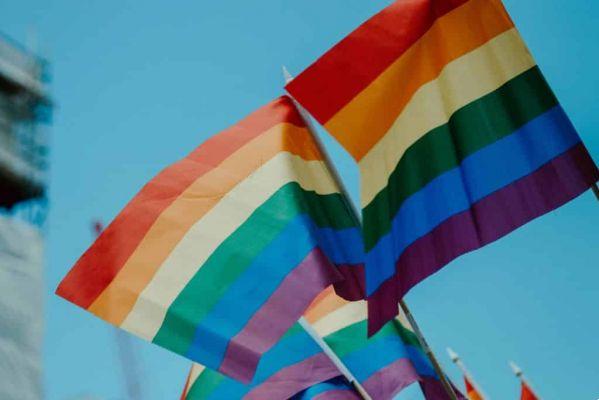In the most recent discussions about the problems of society, a lot is said about the search for equality, including many say that all people are equal and that they should have the same rights because of that, regardless of gender, ethnicity or sexual orientation, for example. .
While this perspective on reality has a positive intent, the belief that we are all equal is utopian, that is, in an ideal world, we would all be equal and have the same rights and opportunities. But we don't live in the ideal world, and there are differences between us.
For this reason, equity would be a better solution to the problems of social inequality. If you've never heard about this concept before, get ready to have a big reveal with the content we've prepared. Discover how we can make society more just and respectful for all people!
But what exactly is equity?
The first definition of equity that is disseminated was developed by the philosopher Aristotle. In an unusual language nowadays, he describes that equity is related to the concept of proportionality and justice. To understand how these three concepts relate, look at an example:
Person X has five apples to eat during the week. Person Y, on the other hand, has only three apples to eat in the same amount of time. On a walk, these two people find two apples. If they each keep one of the apples, as would be fair, person X will have six apples to eat for the week and person Y will only have four apples for the next few days.
This is where proportionality comes in. That's because person X already had a greater amount of apples than person Y, so, proportionally, it would be better for person Y to keep the two apples found. That way they would both have five apples to eat during the week. That's how equity works.
Through this concept, the reality of society is analyzed, before measures are taken to promote equality. Instead of simply dividing the two apples between two people, for example, we will investigate how many apples each person already has. It is therefore necessary to recognize the inequalities that already exist, in the first place.

Second, it is necessary to adopt a measure to achieve balance between people. This measure may sound unequal, even if it is fair, because people negatively affected by inequality are given a privilege that others do not. Understand how this works in practice, with examples you already know:
1) Quotas for entry into universities
Target of much criticism, quotas for university entrance are a measure to promote equity, because they are offered to people who have had fewer opportunities to access quality education during school life and who are competing with those who could study. in good institutions.
Imagine, then, two people: B and C. B has always studied in private schools and prepared for college entrance exams for years. C, on the other hand, needed to work while studying and only attended public schools. If B and C do the same proof, B has an advantage over C, right? With quotas, there is a chance to reduce this difference.
2) Maria da Penha Law
The Maria da Penha Law is aimed at women who are victims of domestic violence. This measure is an example of promoting equity because, due to machismo and femicide, women are more likely to be assaulted and murdered by their family members, compared to men. That is why the existence of a Maria da Penha Law for men would not make sense.
To more efficiently welcome and assist victims of domestic violence, the Maria da Penha Law was developed. Even if it does not solve the problem of gender inequality, it is a strategy to deal with the consequences of it, in order to ensure that women who are abused are heard.
3) Preference for hiring LGBTQIA+ people

In the job vacancies currently available, it is common to see that they have a preference for hiring LGBTQIA+ people. In response to this, many cisgender and heterosexual people may believe that they are being victims of prejudice, after all if the vacancy gave preference to them, it would be wrong, wouldn't it?
But this measure of equity is not discriminatory. In fact, it is a way to include LGBTQIA+ people in the workforce, as they are often fired or even hired for being who they are. A cis and straight person has never stopped being hired or been fired for being cis and straight, so the preference indicated is an attempt to correct inequality.
Equity and equality: what's the difference?
After delving into the concept of equity, you may be trying to understand why it is different from the concept of equality. The reason for this is that equality has always been presented as a universal solution to the world's worst problems, and is hardly seen as a negative thing, so how can equity be better than it?
To understand this issue, you must understand that equity is the path to equality, that is, equality between people can only be achieved if the differences that exist between them are overcome, through equity. You will understand better with an example:
In ABC city, white people always had their own houses to live in, and the chance to save some of the money they earned, every month, but black people in ABC city always lived in white people's houses, in a regime of slavery, and received no payment for their work.
When slavery was abolished, black people from ABC could live freely, having a home of their own and paid work, that is, they became equal to white people, right? Wrong.
Even if this scenario seems like the achievement of equality, it is necessary to remember that white people have always had their own house and money, in addition to being free. Since black people have never had access to these two items, how can they be equal to white people? Where will they live? How will they support themselves?
In this sense, the ideal would be to develop a housing program and an employment program for black people, who will start building their own lives now. White people are not going to have access to these same programs because they don't need them, so these programs are trying to correct reality through equity.

In the future, when white people and black people have had their own homes and money for a long time, they will be on an equal footing. But this only happened because of equity, which developed a mechanism so that the inequalities between them could be overcome.
Thus, the difference between equality and equity is that equality disregards pre-existing differences between people, while equity identifies and corrects these differences.
Got it all, but now what? What do we do?
Now that you know about the importance of equity in solving social problems, it's time to assume your role in this process. Find out what attitudes you can take to contribute to the search for a fairer society!
1) Recognize your privileges
Recognizing your privileges is critical to understanding equity. Through this attitude, you will understand that affirmative action, for example, is not “reverse prejudice” or an injustice. On the contrary, you will understand that other people never had the same conditions and opportunities as you and that reality needs to be corrected.
2) Support those who are historically disadvantaged
People who are historically at a disadvantage compared to others are victims of prejudice and oppression. If you have the opportunity to offer them a job or if you can support their work, do so. Also pay attention to what these people say about the realities they live in, to understand how you can help them.
You may also like
- Analyze why all people are different from each other
- Do you know why companies hire people with disabilities?
- Understand whether it is right to treat people fairly or equally
- unequal equality
- Get inspired by those who fought for equal rights
3) Make others aware of the issue
The more people who understand the importance of equity and why it exists, the more easily this concept will be applied to our lives, so talk to your friends and family about the topic, so that they recognize that something that seems unfair can be, in indeed, a path to equality.
Considering each information presented, we understand that equity is a way to achieve social equality, which we so much seek. It is necessary to correct inequalities through affirmative actions, such as quotas, and with daily attitudes, supporting those who have been at a disadvantage for a long time. Keep learning about it to improve society!

























